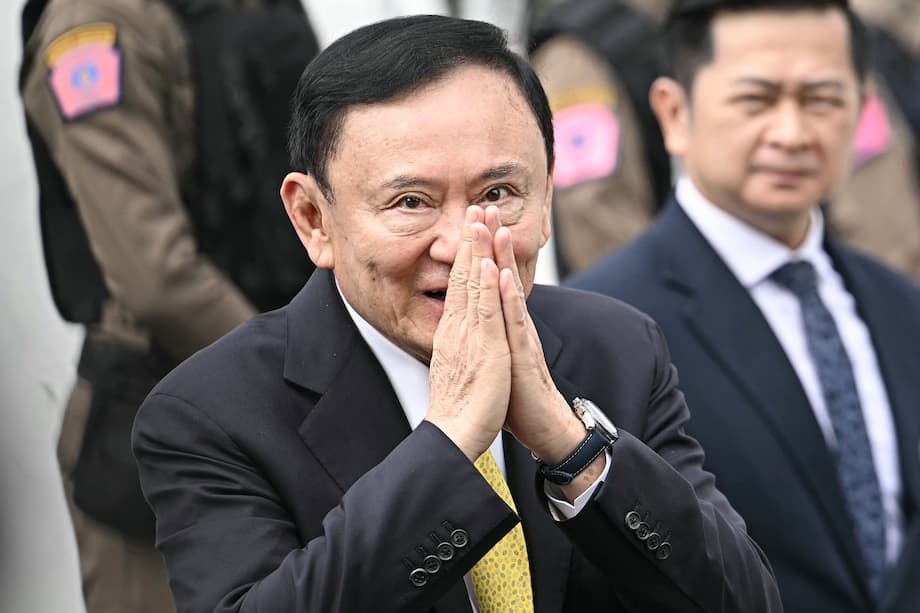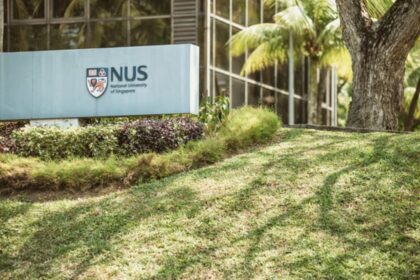Supreme Court declares hospital detention unlawful, orders prison term
Thailand’s Supreme Court ordered former prime minister Thaksin Shinawatra to serve one year in prison after judges ruled that his stay in a hospital last year did not qualify as lawful custody. The 76 year old billionaire and political heavyweight arrived at Bangkok Remand Prison shortly after the decision, ending a period in which he served his commuted sentence in a VIP hospital suite instead of a cell. The ruling marks a dramatic reversal for a figure who has towered over Thai politics for two decades.
- Supreme Court declares hospital detention unlawful, orders prison term
- How a hospital stay replaced a cell, and why judges rejected it
- A dynasty at a low ebb, yet still central to Thai politics
- What the court examined and why the time did not count
- Public reaction, fairness, and a long running grievance
- What the key players are saying
- Where Thai politics stands after the ruling
- The law, the monarchy, and the boundaries of dissent
- Inside Bangkok Remand Prison and what may follow
- Key Points
Thaksin returned to Thailand in August 2023 after 15 years in self imposed exile and was immediately taken into custody to serve time on earlier convictions for conflicts of interest, abuse of power and corruption. He spent only hours in a prison cell before being moved to the Police General Hospital, citing heart symptoms and low oxygen levels. Months later, King Maha Vajiralongkorn reduced his eight year term to one year, and Thaksin was released on parole in February 2024. The court has now found that the hospital stay was unjustified and should not count as time served, ordering him back to prison to complete the one year term.
Video of the motorcade entering the jail circulated across Thai media, while supporters and critics gathered outside the court compound. The decision caps a tense stretch for the Shinawatra family. It comes days after Thaksin’s daughter, Paetongtarn, was removed as prime minister by the Constitutional Court, and amid a transfer of power to Anutin Charnvirakul, who won a parliamentary vote to become the country’s next leader.
How a hospital stay replaced a cell, and why judges rejected it
From the first night of his return in 2023, Thaksin’s detention became a test of public trust in equal treatment under the law. He was moved from prison to a hospital suite on the fourteenth floor of the Police General Hospital, a case that gripped the public and became known as the 14th floor case. For six months, he remained under medical care, then walked free on parole. Many Thais asked whether the system bends for the powerful. Investigators later scrutinized medical paperwork and decisions made by hospital and prison staff.
On Tuesday, the Supreme Court’s Criminal Division for Holders of Political Positions concluded that Thaksin’s hospital stay was unlawful and could not be deducted from his sentence. Judges said his underlying conditions, such as hypertension and chest tightness, were chronic issues that could have been treated as an outpatient. In their view, the extended admission and some procedures were unnecessary, pointing to an effort to prolong his time outside a cell. News agencies reported that the court said Thaksin benefited from remaining in hospital instead of returning to custody, so those months do not count toward his one year term.
The medical fallout began months before the ruling. In June, Thailand’s medical council suspended two doctors who had enabled the hospital detention, stating they issued documents containing false medical information. A prison doctor received a formal caution for failing to meet medical standards. These disciplinary decisions fed public suspicion that the hospital route acted as an off ramp from jail, a charge Thaksin’s camp has denied.
A dynasty at a low ebb, yet still central to Thai politics
Few families have shaped modern Thai politics like the Shinawatras. Thaksin, a former policeman turned telecom magnate, won the 2001 election with a platform that resonated with rural and working class voters, including universal health coverage and village development funds. He won a second term before a 2006 military coup removed him from office. From exile, he remained a powerful force, with parties aligned to him repeatedly winning elections and repeatedly colliding with the conservative and royalist establishment.
His sister Yingluck led a government that was eventually unseated by a court ruling and then a military takeover in 2014. His brother in law also briefly served as prime minister. In 2023, after the Move Forward Party won the most seats but was blocked from forming a government, Pheu Thai filled the vacuum and returned to office. That revival proved short. Thaksin faced a lese majeste case that could have carried a long sentence, but he was acquitted. Then came a stunning reversal: the Constitutional Court dismissed his daughter Paetongtarn from the prime minister’s post over an ethics breach linked to a leaked call with Cambodia’s longtime leader Hun Sen, in which she addressed him as uncle. Parliament then backed Anutin Charnvirakul for prime minister, shifting the balance again.
In this context, the court’s decision to send Thaksin back to prison is not an isolated event. It lands at a time of fluid coalitions, courtroom battles and debate over the boundaries of political power. Critics of the Shinawatras see overdue accountability. Supporters see selective justice and a pattern in which elected leaders linked to the family are removed by courts or coups.
What the court examined and why the time did not count
The Supreme Court, sitting as the Criminal Division for Holders of Political Positions, reviewed whether detention in a hospital could qualify as time served for a previously commuted sentence. The judges concluded it could not, because the medical basis for admission did not meet the threshold for inpatient care. Reports from the proceedings indicate the court viewed Thaksin’s ailments as manageable outside the hospital, describing some interventions as minor and avoidable.
Under Thai law, the court can determine whether time spent outside a designated correctional facility counts toward imprisonment. In this case, judges decided that remaining in a private hospital room did not constitute legitimate incarceration. This finding triggered the order to return Thaksin to Bangkok Remand Prison and serve the one year that followed the royal pardon granted in 2023. His earlier parole after six months, while he remained in hospital, is now deemed to have rested on unlawful detention time.
The message is plain. Medical care is allowed for inmates with genuine, documented need, but months in comfort without a compelling medical reason cannot substitute for custody. The disciplinary measures against the physicians who facilitated the hospital stay underscore that view.
Public reaction, fairness, and a long running grievance
The 14th floor case tapped into long standing resentment among Thais who believe wealth and status can tilt the justice system. Many citizens had watched Thaksin’s hospital months with skepticism while families of ordinary prisoners struggled to secure timely care. The ruling prompted a split response. Opponents of Thaksin hailed a long delayed correction. His supporters voiced sadness but turned out to the courthouse to cheer him on and recall the social programs that improved their lives two decades ago.
Some observers argue the ruling could, paradoxically, reduce the fervor of his most ardent critics by ending a narrative about dodging jail. One veteran political consultant offered that view after the verdict, suggesting the spectacle of a jailing can drain the emotion from a polarizing debate.
Isra Sunthornvut, who heads the Thailand office of the consultancy Vriens and Partners, told an international newspaper that the move could alter how people look at Thaksin’s saga after years of hostility.
The industry of ‘I hate Thaksin’ that has been here for 20 years, they would have nothing to hate anymore.
What the key players are saying
After the verdict, Thaksin issued a statement accepting the decision and urging closure to years of conflict. He framed the coming months as a sacrifice he would endure in service to the nation and the monarchy. His words aimed at supporters who see him as an enduring champion, and at institutions that will oversee his detention.
Even though I may lose my physical freedom, I still retain freedom of thought for the benefit of the nation and its people. I will keep my strength to serve the monarchy, Thailand, and its people.
Outside the court, his youngest daughter and Pheu Thai leader Paetongtarn Shinawatra said the family remained in good spirits. She emphasized that Pheu Thai would continue its legislative work as the opposition, signaling that the party intends to play a visible role in this new political lineup.
We are worried for his health but our spirits are high. The party will carry on its duty in parliament and serve the people as the opposition.
Prime Minister Anutin Charnvirakul, a former ally of Thaksin early in his career, voiced personal sympathy. He told reporters he did not want to see the former leader jailed, while acknowledging the authority of the court. His remarks suggest a pragmatic tone as his administration begins work during a period of heightened political sensitivity.
I have sympathy for Khun Thaksin. I would not want to see anyone in jail. The ruling stands and we must respect it.
Where Thai politics stands after the ruling
Anutin’s ascent as Thailand’s third prime minister in two years reflects a churn that has unsettled investors and voters alike. His Bhumjaithai Party, which once partnered with Pheu Thai, now leads a government that took office after receiving a royal endorsement. Pheu Thai is in opposition, its electoral machine bruised by court setbacks and the loss of the premiership.
At the same time, the appetite for change that fueled support for the progressive Move Forward Party in 2023 still shapes the debate. That party’s focus on reforming the lese majeste law collided with powerful conservative interests and blocked it from forming a government. In the vacuum that followed, Pheu Thai returned to office, only to lose power a year later. The sequence illustrates a familiar cycle in Thailand, where court rulings and coalition bargaining reshape governments between elections.
For the Shinawatras, the prison order is one more blow in a long series. Yet the family’s legacy survives in the policies that vaulted them to national prominence and in rural networks built over two decades. Whether that network can regain momentum with Thaksin behind bars and Paetongtarn out of office will depend on how the opposition organizes and how the new government performs on the economy, cost of living and public services.
The law, the monarchy, and the boundaries of dissent
Thaksin’s legal journey has included a case under Thailand’s lese majeste statute, one of the strictest royal defamation laws in the world, which can carry long prison terms per count. He was acquitted in that case, avoiding what might have been the most severe penalty he faced. The court’s focus then shifted to whether his hospital months were legitimate custody, a question that cut to the heart of equality before the law.
The monarchy retains a central place in Thailand’s constitutional order. Royal pardons, like the one that cut Thaksin’s sentence from eight years to one, sit within that framework. Royal assent is also required for governments to take office. These features shape Thai politics in ways that differ from many parliamentary systems. Critics of the establishment say judicial and royal mechanisms are used to blunt electoral outcomes. Loyalists argue those mechanisms protect national stability and norms.
Inside Bangkok Remand Prison and what may follow
Bangkok Remand Prison houses inmates awaiting trial and those serving shorter sentences. It sits under the Department of Corrections, which oversees health screening for all arrivals. If an inmate needs medical care, prison doctors can order treatment at the prison hospital or, when necessary, at a public hospital under strict custody. After the Supreme Court’s decision, any medical request for Thaksin will be vetted by corrections officers and physicians, with paperwork subject to scrutiny given the controversy that surrounded his earlier admission.
Thai law allows prisoners to seek relief through established channels, including parole, sentence reductions on ceremonial occasions, and, rarely, further royal clemency. Each path involves formal review and eligibility criteria, and decisions rest with institutions, not the courts that handed down this week’s ruling. Thaksin’s legal team can also pursue procedural remedies, but the court’s language about an unlawful hospital stay narrows the space for arguments that those months counted as custody.
For supporters, visitation rights and communication from prison will carry symbolic weight. For critics, the benchmark will be whether the former prime minister receives the same treatment as any other inmate of similar age and medical profile. Corrections officials will be under intense scrutiny each time his care or confinement changes.
Key Points
- Thailand’s Supreme Court ruled that Thaksin Shinawatra’s 2023 to 2024 hospital stay did not qualify as lawful custody and ordered him to serve one year in prison.
- Thaksin, 76, arrived at Bangkok Remand Prison directly after the ruling, ending months of detention in a hospital suite.
- The court said his ailments could have been managed as an outpatient and cited unnecessary procedures that extended his stay.
- Two doctors were suspended by the medical council for issuing false documents related to the hospital detention, and a prison doctor was cautioned.
- Thaksin’s original eight year sentence for conflicts of interest, abuse of power and corruption was cut to one year by a royal pardon, after which he was paroled in February 2024.
- The decision follows the Constitutional Court’s removal of Thaksin’s daughter Paetongtarn from the prime minister’s post and the parliamentary selection of Anutin Charnvirakul as the new prime minister.
- Thaksin accepted the verdict, saying he may have lost physical freedom but retains freedom of thought to serve the nation and the monarchy.
- Reuters reported that Thaksin is the first former Thai prime minister to be sent to prison, a landmark in a country where the Shinawatras have faced repeated court and military interventions.












